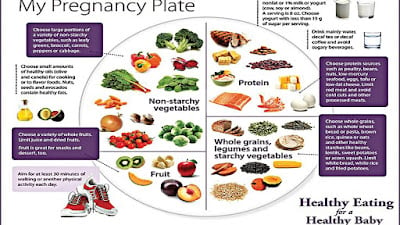
How Onions Improve Sleep, Relieve Stress
Low-carb, high-fat diet may provide cure for epilepsy, seizures
Eat onions, leeks and artichokes if you are stressed and struggling to sleep.
For scientists have discovered that the popular vegetables could help humans to relax – allowing them a better night’s sleep.
They are known to be high in prebiotics, dietary fibers that act as food for good stomach bacteria.
And a groundbreaking new study has found these help to boost gut health by aiding the growth of beneficial bugs.
They also release metabolic byproducts, which influence the brain into overcoming worry and fear, research shows.
Experts believe the findings strengthen the ever-growing link between gut bacteria and overall health.
A lot is already known about probiotics – live bacteria designed to improve gut health – but research on prebiotics is relatively scarce.
To test their effects, a team of United States (U.S.) scientists fed three-week-old male rats a diet of either standard chow or chow that included prebiotics.
The rodents are often used in scientific research due to their close genetic and behavioural resemblance to humans.
They then monitored the rodents’ body temperature, levels of stomach bacteria and sleeping cycles using a brain activity testing.
Those on the prebiotic diet spent more time in non-rapid-eye-movement sleep (NREM), the researchers from University of Colorado Boulder found.
This form is more restful and restorative is where the body gets the chance to repair itself. After being exposed to a stressor, the rats on the prebiotic diet also spent more time in rapid-eye-movement sleep (REM).
REM sleep is when dreams occur, and is believed to be critical for promoting recovery from stress.
Stress has previously been shown to reduce healthy diversity of gut bacteria and to lead to a temporary flattening of natural fluctuations in body temperature.
But rats on the prebiotic diet were buffered from these impacts, the scientists discovered. They maintained a healthy and diverse gut microbiota and normal temperature fluctuations even after stress exposure.
Writing in the journal Frontiers in Behavioral Neuroscience, the researchers said: “It is possible that a diet rich in prebiotics started in early life could help improve sleep, support the gut microbiota and promote optimal brain/psychological health.”
But the researchers said that it’s far too early to recommend prebiotic supplements as a sleeping aid.
Further studies are needed to confirm the effects that prebiotics can have in promoting a good night’s rest or buffering stress.
Also, a diet high in fruit and steak could cure a deadly form of epilepsy, scientists have found.
Super-refractory status epilepticus (SRSE) is the most severe classification of the brain condition, killing 60 per cent of sufferers.
But new research suggests that a ketogenic diet could be used in future as a life-saving treatment for patients.
High in fats and low in carbohydrates, the diet alters the activity of brain cells to prevent deadly fits, scientists claim. In general, after a patient has experienced 24 hours in a seizure and they will be placed in a coma if drugs aren’t working.
They are then awakened after another day to see if the seizures return. If so, they are then considered to have SRSE. The patient will then return to a coma and continue on other medications to try find a treatment method. Researchers from Johns Hopkins University recruited 15 patients between the ages of 18 and 82 who were hospitalized with SRSE.
The scientists gave them a ketogenic diet, consisting of four parts fat to one part carbohydrates and protein.
Each were fed through a feeding tube over 72 hours, with their calorific needs based on their weight. They were then weaned off of the drugs to see if their seizures had stopped.
If the fits did not return at this point, patients continued with the diet for several days until they could eat on their own.
At which time they were switched to a modified Atkins diet, which is high in fat and low in carbohydrates as well.
If a patient’s seizures continued, they were kept on the feeding tube and given additional drugs.
While super-refractory seizures stopped for 79 per cent of the patients on the ketogenic diet, the study published in Neurology found.
Two thirds of the patients experienced adverse effects of the diet, such as constipation, weight loss and high cholesterol, they found.
Further research is needed to support the idea that the ketogenic diet should be widely used in treating epilepsy, the researchers noted.
Study author Mackenzie Cervenka said: “We can only state that it appears to work in some patients to halt status epilepticus and reduces the frequency of their seizures.
“What we can say is that the ketogenic diet is promising for at least a subset of patients. Any safe means we have of getting patients off of anesthesia and out of a coma quickly will be welcome.”
By Chukwuma Muanya [The Guardian]


